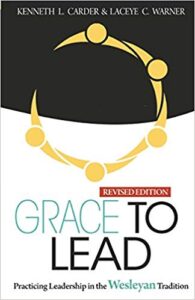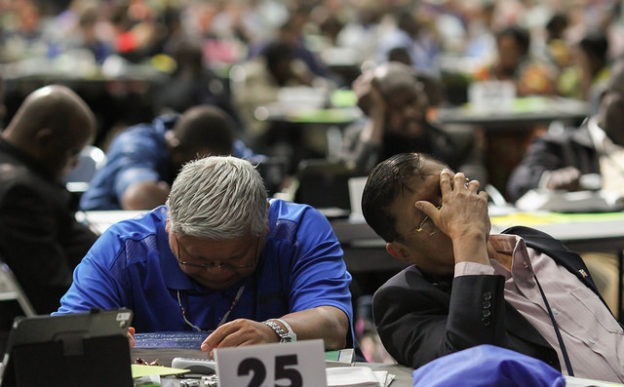For every action, there is an equal and opposite reaction.
That is Sir Isaac Newton’s third law of motion. It explains how birds fly and fish swim. Jump on a trampoline and you’ll experience the third law firsthand: You force the bounce mat down, and it springs back to throw you up into the air. Newton’s law applies to actions and reactions in the physical world. But we can also see a similar law in human relationships. When you act emotionally toward someone else, he or she will always react back toward you.
Offer love to another, and you expect to receive that love back again. But lash out in anger, and the response will be different. Just as with Newton’s law, the character of the emotional reaction is determined by the initial act itself.
This isn’t so much the law of motion as it is the law of the heart. We’re made with it stitched into our souls. Human relationships work on an action-reaction dynamic. So wouldn’t it be great if we always acted out of love? And wouldn’t life be simpler if our loving acts were always interpreted as we meant them to be?
Unfortunately, the analogy between the law of motion and the law of the heart does have a limit. A bird’s wings beating against the air or a body’s weight on a trampoline are impersonal forces. There is no moral quality to motion.
Human relationships are very different. With us, the impersonal becomes very personal! Every one of our relationships has a moral character to it. We don’t, in fact, always act as we should. Even when we do, our actions and attitudes are not always interpreted as we mean them to be. The sinful and broken reality of life intrudes on every relationship we have.
Instead of love, we act in anger. Rather than gratitude, we experience greed. Given the opportunity to show compassion, we show cruelty instead. The clarity we wish existed in person-to-person interactions is missing; in its place we find the fuzziness of mistaken intentions and plain misunderstandings.
The law of the heart—as it turns out—is more like the law of the broken heart. The presence of sin within us ends up affecting our interactions at every level—a vicious cycle of hurt and revenge. Husbands and wives experience it in marriage. It thrives both in the workplace and the marketplace. Politics is rife with it. It’s the reason wars are fought in every age.
We don’t have to be convinced that love should be met with love, and anger with anger. We just don’t seem to know how to choose love rather than reaction consistently. Sometimes we don’t even know how to interpret love when it comes our way. We act out of anger and hate and resentment, and we react in those ways when others provoke us. And so we feed a monster whose appetite is endless.
From Reaction to Forgiveness
Our dilemma is that we ought to act and react in love; but instead, we find ourselves doing the contrary. The Christian faith has a solution to the cycle of hurt and revenge, though, and it lies at the heart of the Gospel. That solution is found in forgiveness.
We first must realize that there’s nothing natural about forgiveness. To practice it, we have to react to others in ways that are not equal and opposite to the actions upon us. “Where there is hatred, let me sow love,” the Prayer of Saint Francis puts it, and this is exactly the counter-intuitive commitment that forgiveness requires. It’s so difficult that we cannot do it on our own.
The need for forgiveness to be at the center of human relationships is demonstrated by the fact that forgiveness was at the very center of Jesus Christ’s ministry. He came into the world claiming the power to forgive sins. It was this very act that caused the religious authorities to oppose him saying, “It is blasphemy! Who can forgive sins but God alone?” (Mark 2:7)
We see in the crucifixion how the Son of Man who came to forgive sins finally becomes the agent of forgiveness through his own body. His sacrifice upon the cross mediates God’s forgiveness to the whole world. As the Apostle Paul puts it to the Corinthians, “For our sake he made him to be sin who knew no sin, so that in him we might become the righteousness of God” (2 Corinthians 5:21). We are all called to receive Christ’s forgiveness. We come to know it through a sure trust and confidence in him and the power of his atonement for our sin.
Learning to forgive is the only path to truly loving relationships with others. And Jesus shows us that to acquire the forgiving heart which allows us to forgive each and every day, we must first come to know what it means to be forgiven.
Forgiveness and Sanctification
We are reconciled to God when we receive forgiveness in Christ. That is a monumental spiritual experience! But we haven’t fully overcome our problem just by being forgiven. We need both pardon for sin and the power to overcome its corrupting effects as we move forward in our lives. Without the power added to the pardon, I could hear the message of the cross with joy as it pertains to God’s forgiveness of me, while going right ahead and dealing out vengeance on all those I think have wronged me.
So where can any of us find that power?
John Wesley’s account of how the power of forgiveness is conveyed into the lives of believers is helpful on this point. Wesley’s view on the power of forgiveness is full of deep spiritual insight—especially as it is related to the way that forgiveness can transform us inwardly. Take for example the familiar story of Wesley’s experience on Aldersgate Street on May 24, 1738. Sometimes we can sentimentalize Wesley’s “heart strangely warmed” and confine its importance it to a moment of his personal spiritual journey. But Wesley’s narration of the Aldersgate story in his Journal makes a statement about the profound importance of forgiveness within the experience of salvation for all of us. Here’s how he describes what happened to him that evening:
“I felt I did trust in Christ, Christ alone, for salvation; and an assurance was given me that He had taken away my sins, even mine, and saved me from the law of sin and death.”
Wesley is sharing one of the primary convictions of heart-warmed Christianity in this testimony: God’s forgiveness through Jesus Christ is meant to be received personally by every child of God. This is what it means to know God as Father, and it is the way we are adopted into God’s family. The reconciliation we find in forgiveness is such a dramatic experience that it gives us new birth.
In Wesley’s view, though, the power of forgiveness extends beyond the moment of our reconciliation to God. Forgiveness is a part of our ongoing spiritual growth as well. To be redeemed—fully redeemed—means to be transformed by the love of God.
So when the Apostle Paul writes to the Colossians that Christ Jesus is the one, “in whom we have redemption, the forgiveness of sins” (Col 1:14), Wesley writes in his New Testament commentary, “forgiveness is the beginning of redemption, as the resurrection is the completion of it.” He links the pardon of the cross with the power of the resurrection, not wanting us to diminish any part of the fullness of redemption.
On the other hand, Wesley also understands that forgiveness continues to work in us as a special kind of power, forming the very virtues that will nurture a forgiving heart. Later in Colossians, Paul says we should embrace compassion, kindness, humility, meekness, patience—and finally love. And in the midst of that counsel, Paul emphasizes the need for Christians to forgive one another. “Just as the Lord forgave you, so also should you forgive” (Col 3:13), he writes.
Wesley adds in his New Testament commentary that those who have been renewed by Christ’s forgiveness are none other than the elect of God. He writes, “holiness is the consequence of their election, and God’s superior love, of their holiness.”
So God’s forgiveness begins a renewal—a healing—in the soul. And the character of that renewal is a soul filled with God’s love. This is what it means to be made complete, as Wesley points out using the New Testament’s language of “perfection”: “The love of God contains the whole of Christian perfection, and connects all the parts of it together.”
The power of forgiveness is rooted in the fact that it is an act of God’s love. So forgiveness cancels our sin and then begins to heal us of that sin entirely, all the while enabling us to begin forgiving others. Forgiveness, in this sense, is the very rhythm of redemption – our redemption and the redemption of all our relationships.
“We love him because he first loved us,” Wesley tells us in the sermon, On Family Religion. That love is, fundamentally, the “love of a pardoning God.” It’s a love that “may admit of a thousand degrees” (for not all of us are at the same place in our journey).
But it always makes us thankful for Christ’s gift to us and compassionate toward all others for whom Christ died. “Gratitude to our Creator will surely produce benevolence to our fellow-creatures,” Wesley tells us. “If we love him, we cannot but love one another, as Christ loved us.” Then he goes on: “And toward all the children of God we put on ‘…kindness, gentleness, long-suffering, forgiving one another even as God for Christ’s sake hath forgiven us’.” We learn to forgive in love, because the loving forgiveness we have received makes us into new creatures.
While life in this world makes it easy for us to react to others with a hard and self-centered temper, the forgiveness we receive through Christ teaches us a better way. Knowing mercy, we are made merciful. Having been forgiven, we learn to forgive. And then we are welcomed into the company of Jesus’ true friends, where we begin, “steadily walking in all his ways, [and] doing his will from the heart.”
This is the power of forgiveness—the power that will save us and the power that will ultimately transform this world.
A version of this originally appeared on Wesleyan Accent in 2014.








 hearts that includes our personal thanksgivings and humble requests.
hearts that includes our personal thanksgivings and humble requests.